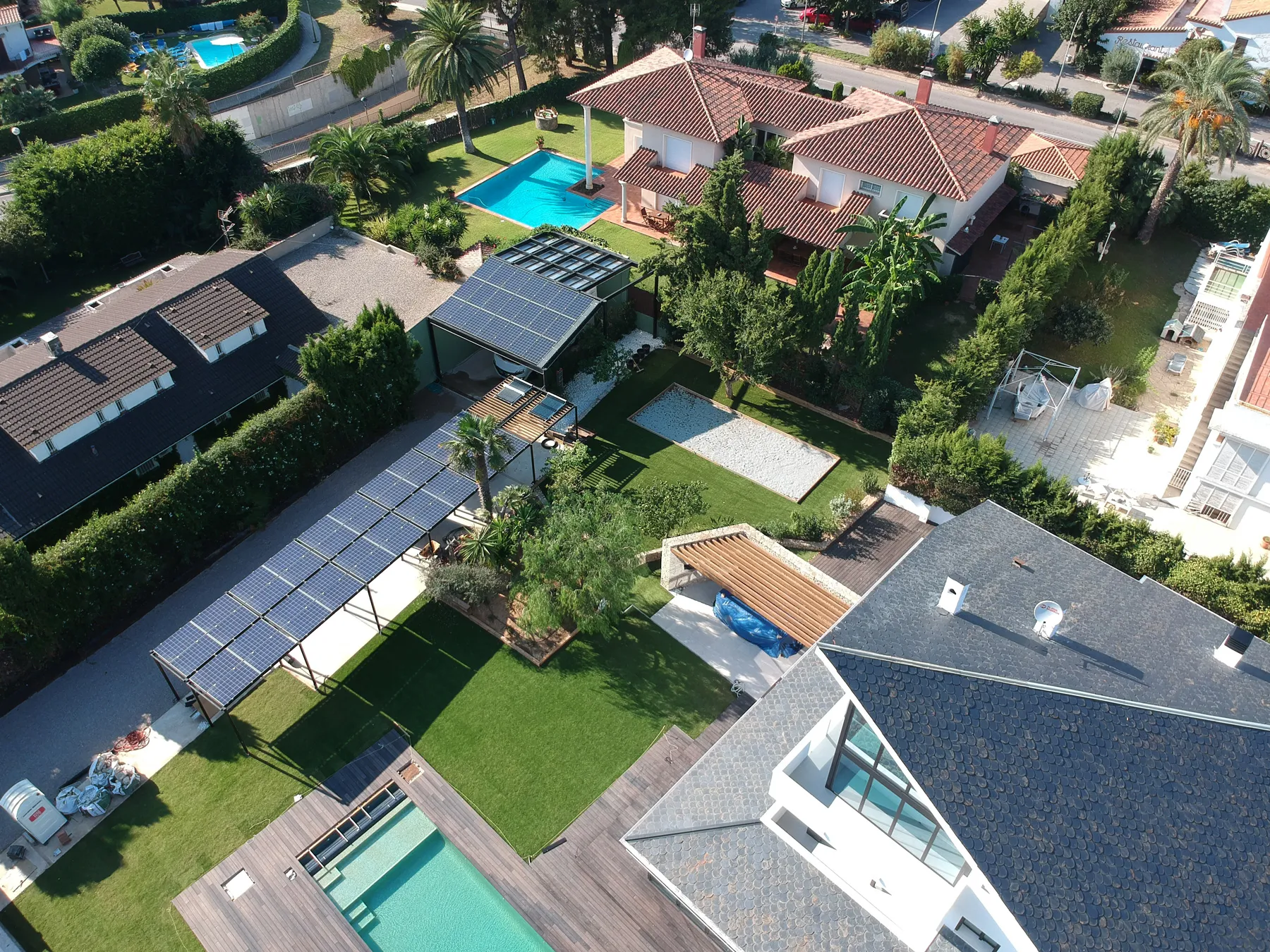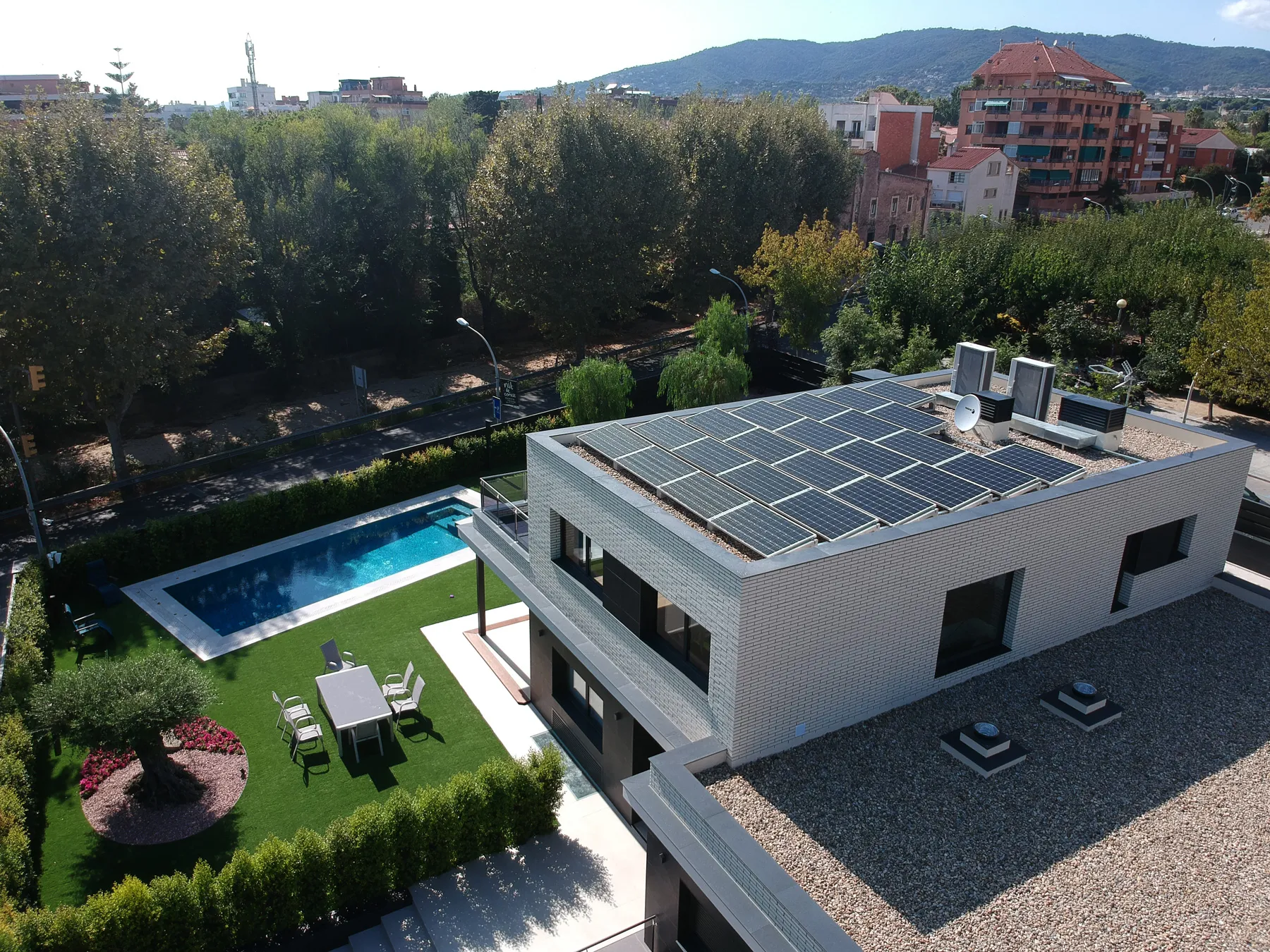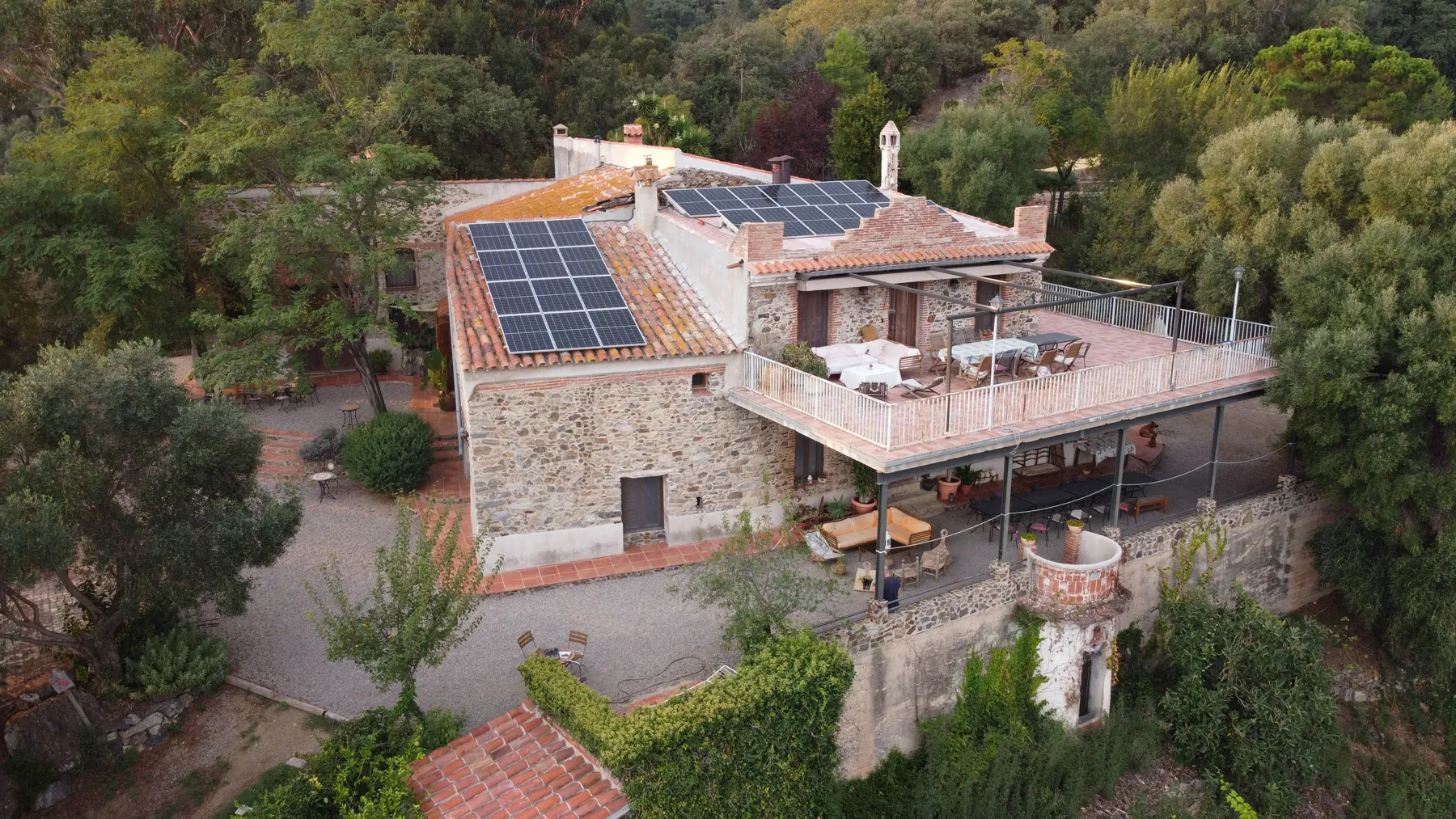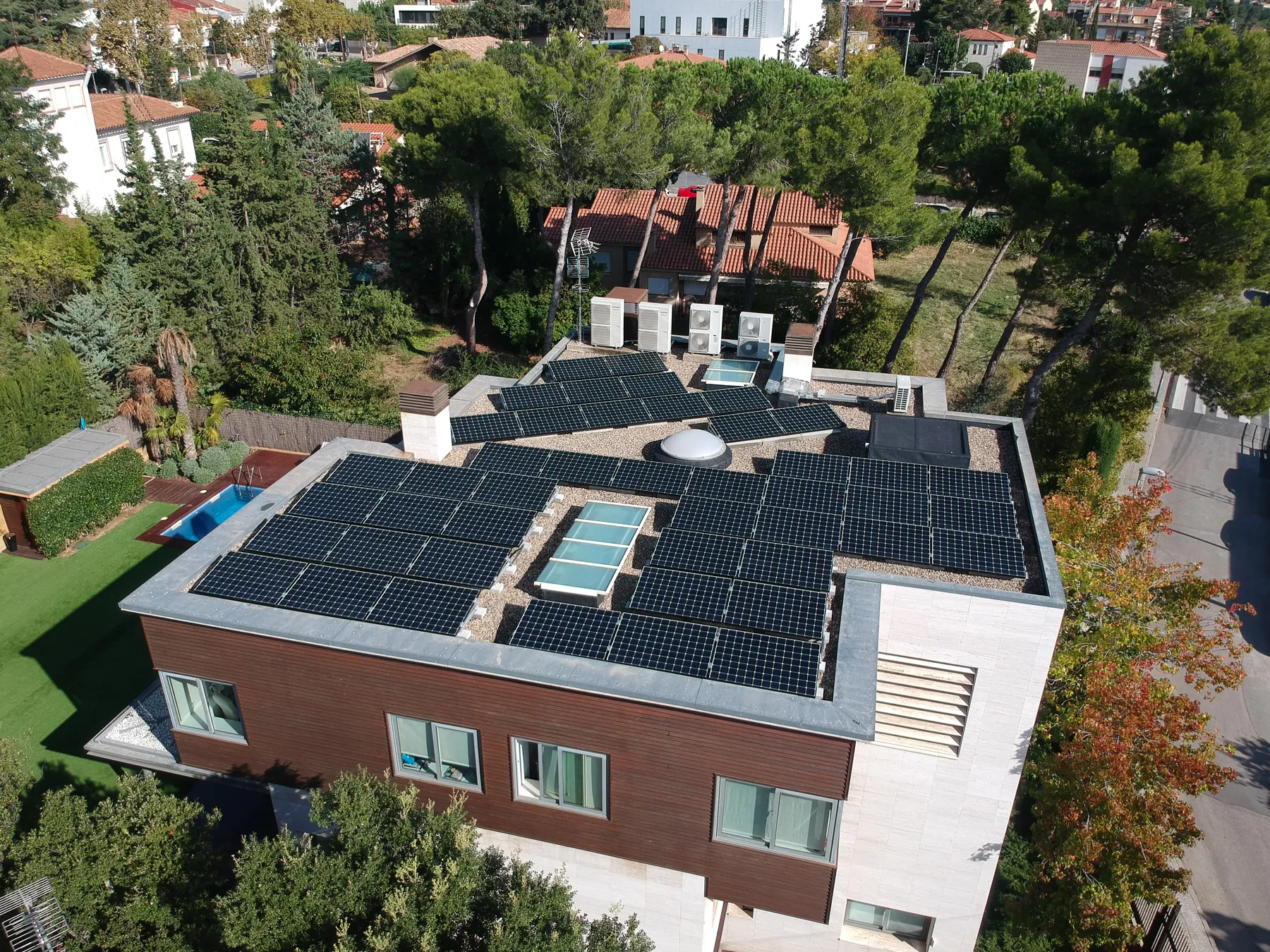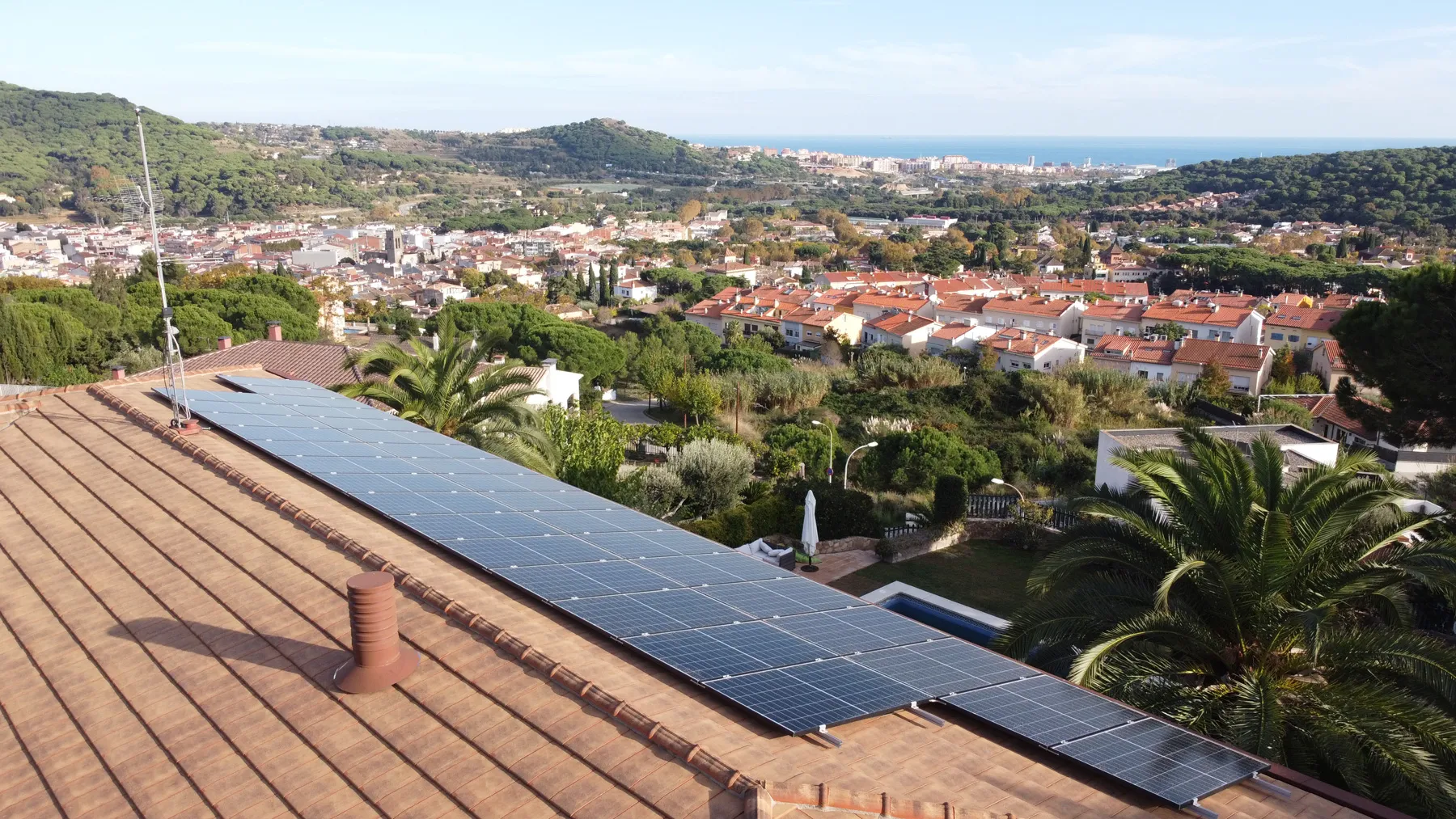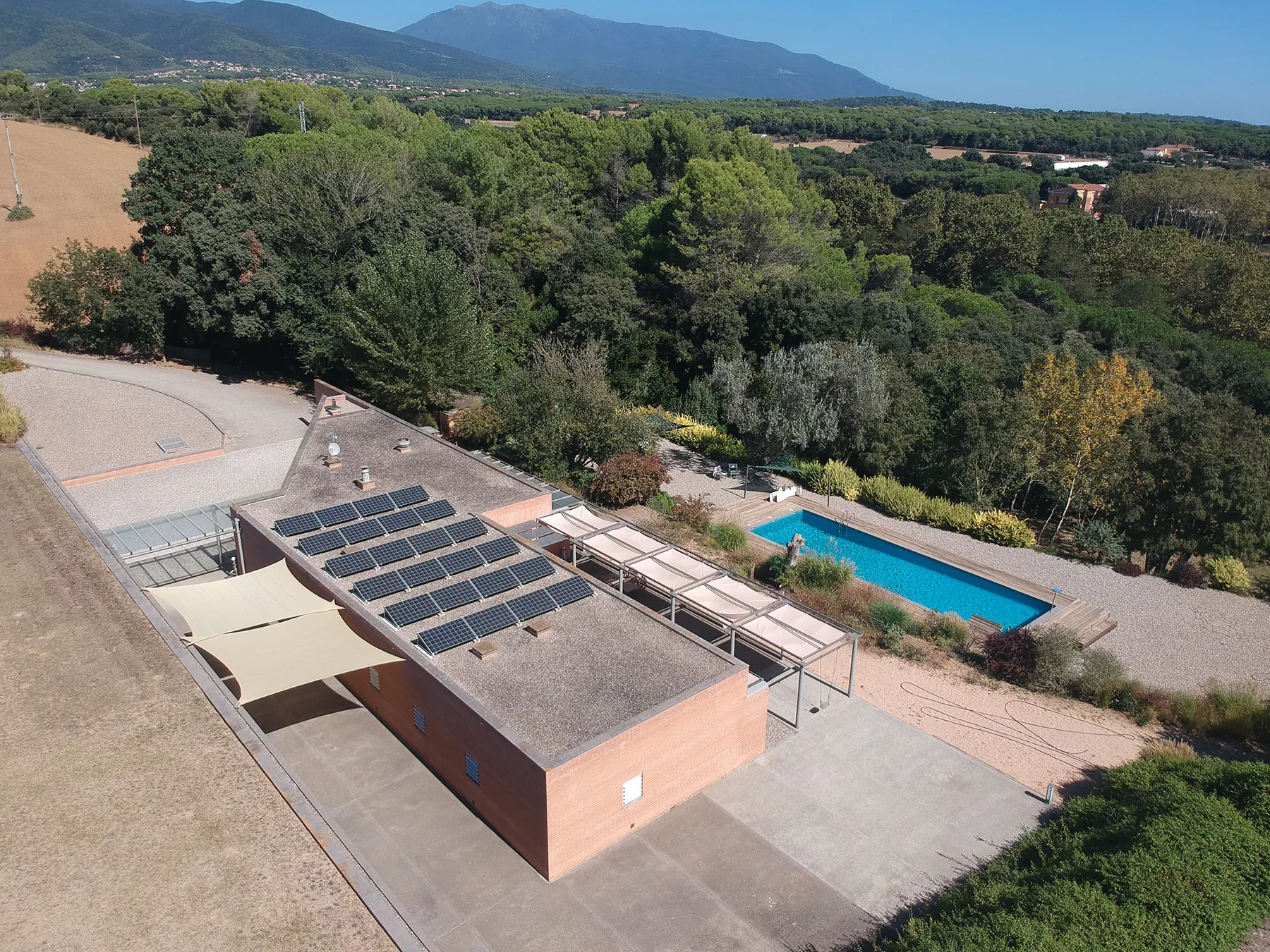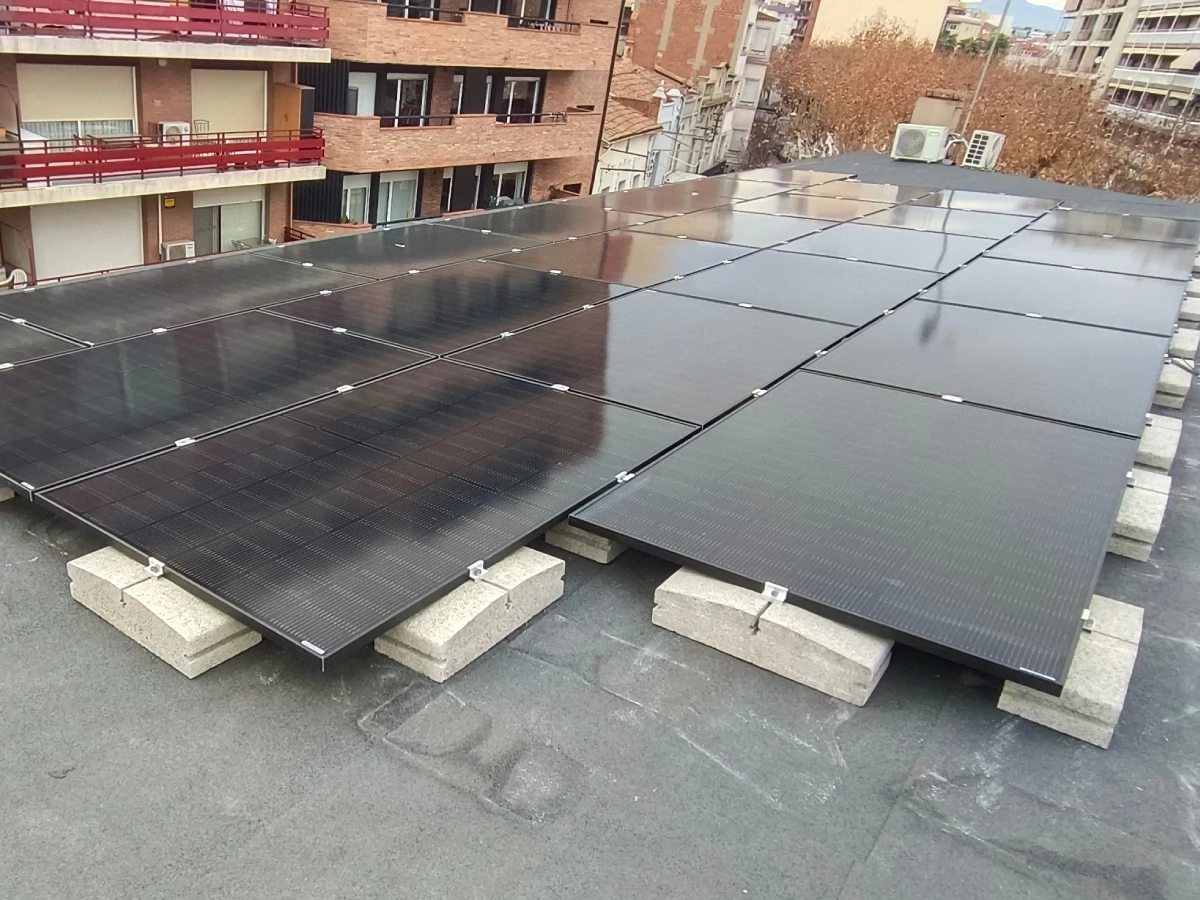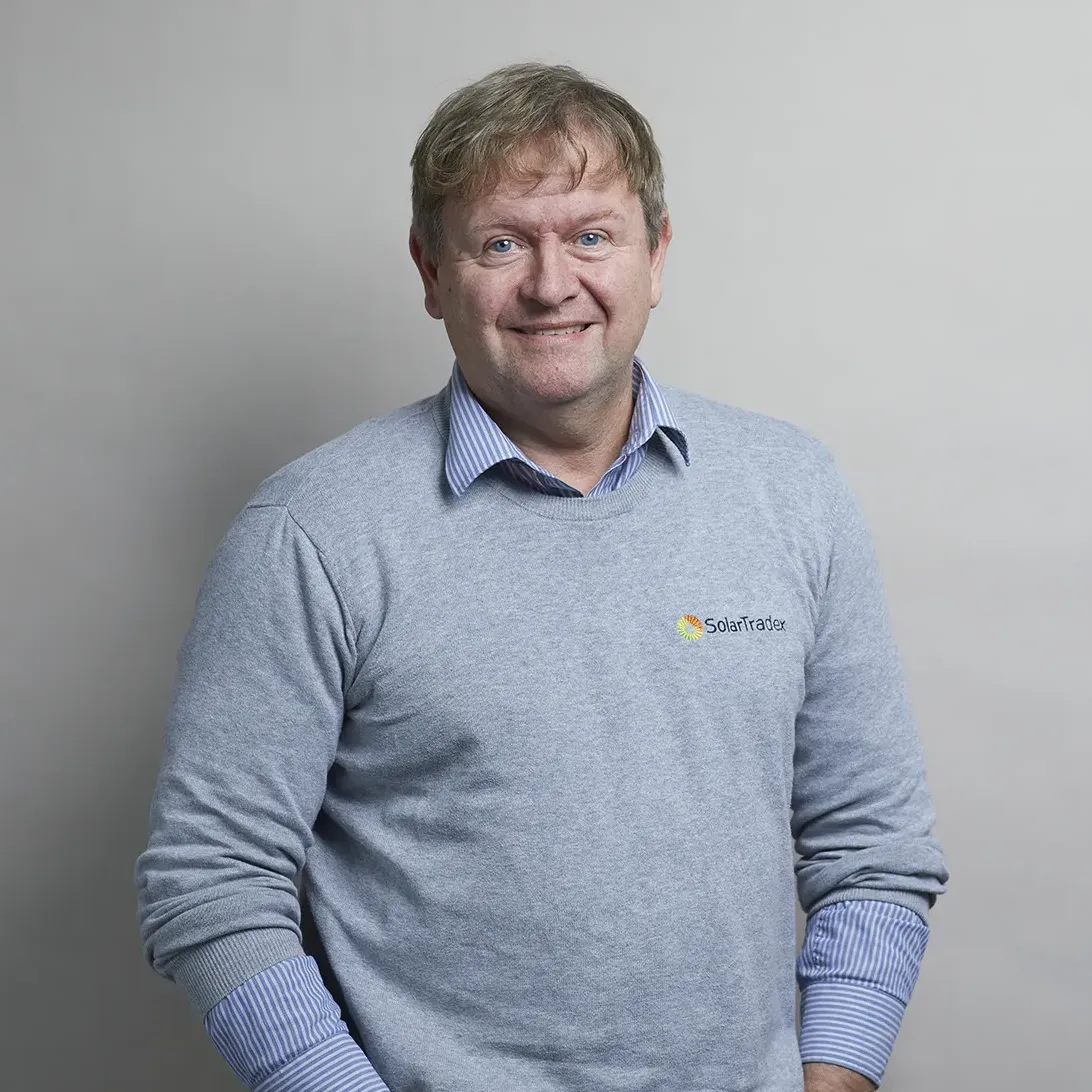Installations for residential self-consumption
Self-consumption projects in the residential sector
SolarTradex is a company with a long history, experience and reputation in the field of solar installations for residential, collective, commercial and industrial self-consumption. We have our own engineering and our own teams of solar installers to manage all phases of your project with maximum guarantee, including design, engineering, processing, installation and commissioning, legalisation and management of subsidies, grants or tax credits.
installation of solar panels 2026
Municipal tax credits for IBI and ICIO, deduction in personal income tax (IRPF) and non-refundable "Next Generation" subsidies
Team of professionals
We are committed to offering the best service and working hand in hand with our clients to achieve the most appropriate and efficient solution in each case. With our highly qualified and experienced team, you can be sure that your project will be in good hands.
Frequently asked questions

Is it necessary to hire maintenance for my home solar installation?

The best maintenance that your solar installation can have is to have a good monitoring system that allows you to know that your solar installation is producing correctly at all times.
The only maintenance task that may be advisable is to try to clean the solar panels from time to time (mud and bird deposits). In any case, only clean the panels if access is sufficiently secure.
Generally, rainwater already cleans the panels since a 5° inclination of the panels is more than enough for the water to remove dirt from the solar modules. Residential installations typically have between 10° and 15°.
Rather than paying in advance for a maintenance service that will eat up part of the annual savings, we recommend keeping a good track of production and, if necessary, hiring our after-sales service.
We are currently preparing a premium monitoring solution that will allow us to carefully monitor production and set a few alarms that will alert us of any anomaly.

I have solar panels on my house and it turns out that when the electricity goes out, the solar installation stops working.

Current regulations require solar installations to stop working when they do not detect mains voltage for safety reasons.
Imagine that the electricity company wants to carry out maintenance work on the distribution network and cuts off the power supply to the entire street. If the solar installations were to continue to operate, they could cause electricity to flow back into the grid, which would endanger the workers who are working.
Translated with DeepL.com (free version)

Do you recommend any solution to keep the solar installation running if there's a power outage at home?

Yes, there are backup solutions that allow the solar installation to continue working even when there is a power outage. These solutions combine the use of batteries with a backup system that ensures that your PV system can operate autonomously, safely disconnecting from the grid.
Installing a backup system gives you the peace of mind to keep essential services such as the refrigerator, lighting or router working during a power outage. Nowadays, batteries are becoming more and more affordable and can be sized to suit your actual power needs.
Although the initial investment is higher, having a backup offers greater energy independence and security against unforeseen events. Our recommendation is to consider this option, especially if you live in areas where power outages, even if they are occasional, can cause inconveniences. We can advise you to design a customized system, ensuring the best balance between cost and benefit.

I am debating whether to put 10 panels or 12 panels at home. What do you recommend?

If your doubt is between installing 10 or 12 panels at home, we will always recommend installing 12 panels and not precisely because we make a living installing 2 more panels.
The fact is that the marginal cost of adding 2 more panels now is minimal compared to the cost of adding 2 panels once the installation has been completed and legalized, since then we will have to move again, disconnect the roof wiring and reconnect it with the two additional panels, modify the project, carry out a new legalization, etc.
We are increasingly moving towards an electrification of demand with the arrival of the electric vehicle, aerothermal energy, etc... and therefore it is logical to think that in the future your electrical consumption will increase.
We recommend installing two more panels.

How do you anchor the solar panels to the roof of the house and what is the risk of leaks?

With the appropriate drill bit, the tile is drilled in its highest part until you reach the structural part of the roof below, whether it is made of mesh or concrete. It is in this structural part under the tiles where the screws that support the aluminum structure and the solar panels are attached. The tiles are therefore only pierced by the fastening screws that have a flat rubber gasket that is tightened with a female over the hole, giving it the tightness that will obviously prevent possible leaks.
Furthermore, since all the holes are below the modules, which act as a roof, and water never runs through the highest part of the tiles, they will not even get wet.

Do I have to ask Endesa for permission to install solar in my house?

If your installation is up to 15 kW, in most cases you will not have to ask Endesa for connection permission.
However, if your facility is not located on urbanized land and has the basic facilities and services required by urban planning regulations, it will be necessary to request a connection study from the distribution company in the area, which has a cost of €100 + VAT
Furthermore, in these cases, it will be necessary to process a technical access contract with the distribution company, which regulates the technical conditions of connection to the distribution network. This is not an economic contract.

What procedures must be carried out to set up an installation in my home? And what cost do they have? Do you do it?

First of all, we must process a prior notice of works and we will have to pay the construction and works tax (ICIO), which has an approximate cost of 4% of the cost of the work before VAT (it depends on the tax ordinances of each town council). .
In any case, most town councils have a bonus of 95% of the tax value for those projects that incorporate solar panels into the home. We process this bonus.
In addition, you will have to pay the urban planning license fee, which costs approximately 1.5% of the cost of the work before VAT (normally between €50 and €100).
Some municipalities also ask to deposit a small deposit for the management of the debris, which is returned upon completion of the work and to present the certificate from the waste manager who has received the debris.
Once the prior works communication has been processed, we must open the work center in case there is ever a work inspection or a serious accident occurs on the work site. This procedure has no cost, but it has a very high price if they hook you into working without having completed the procedure.
Now we can begin the installation, although some town councils illegally process what they call a deferred works statement that forces us to wait for its resolution due to the approval of the previous works statement.
Once the installation is done, we will begin the legalisation procedures; Firstly, the registration of the installation in the Registry of Technical and Industrial Safety Installations (RITSIC) at no cost, and finally the registration in the Self-Consumption Registry of Catalonia with a cost of €32.

Is it true that I can deduct part of the solar installation from my income tax return?

All residential installations carried out until 31/12/2023 have the possibility of deducting 40% of the investment (with a maximum of €3,000) if they demonstrate with an energy certificate prior to installation and a subsequent one, that they have achieved savings 4'% of non-renewable primary energy.
It can also be achieved if you achieve an A or B energy classification in the energy certificate after installation.
Now, achieving these savings solely with solar installation is frankly complicated, since they can normally be achieved when acting on the thermal envelope of the building or making investments in the air conditioning system by installing aerothermal heaters.



